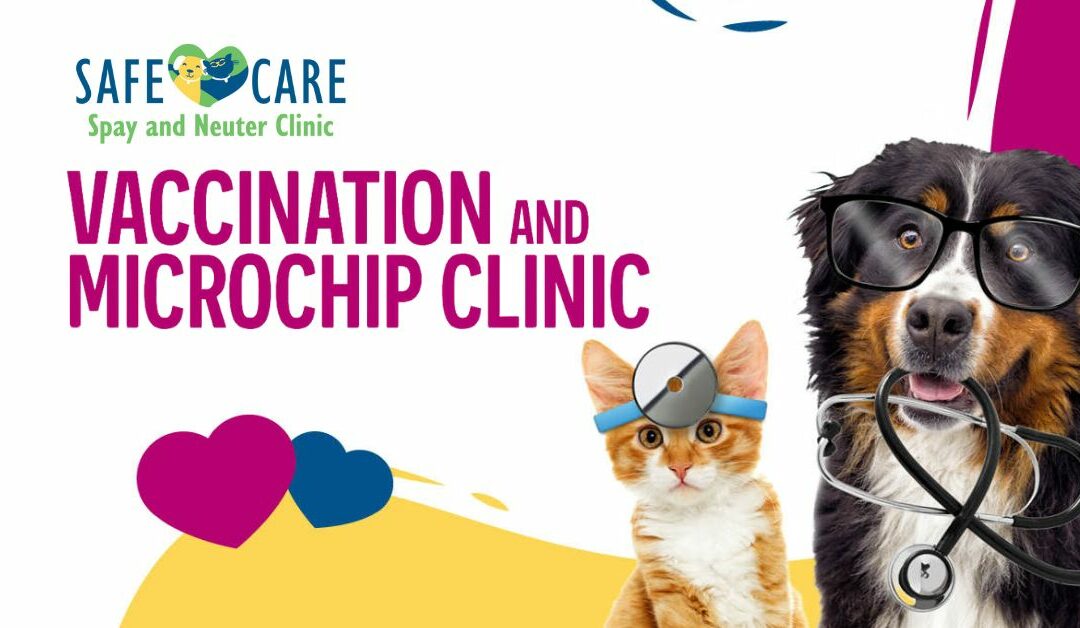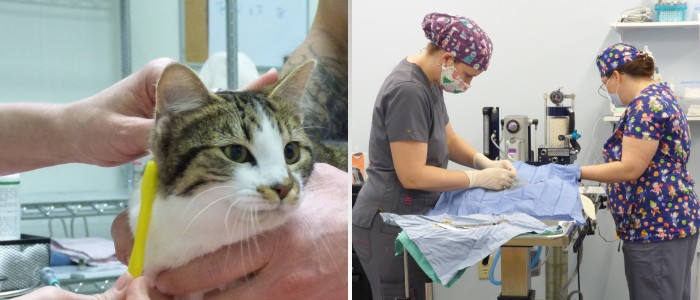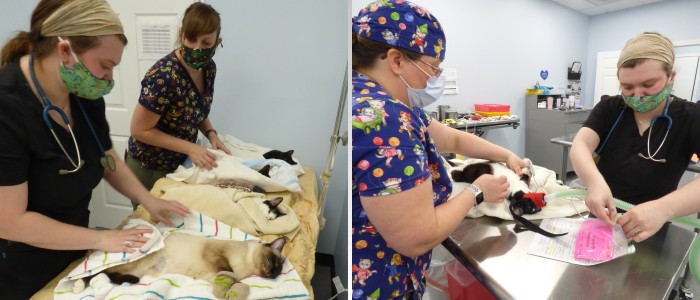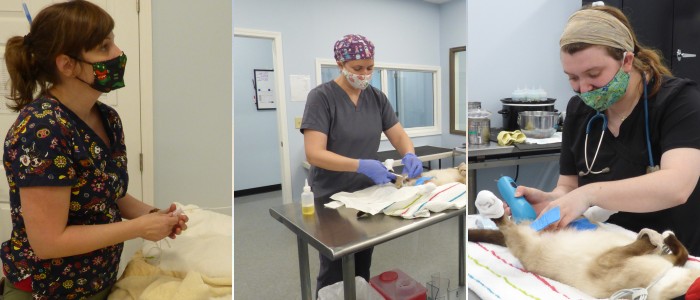FAQs
Why Spay and Neuter?FAQs
Why Spay and Neuter?There are over 50,000 cats living without a home in the Triangle.
Fighting to reduce this number is a major part of our mission. We are committed to spaying or neutering every cat. We support spay / neuter as a means to control overpopulation and reduce euthanasia among cats. Simply put, sterilization controls pet overpopulation by preventing litters.
Here is how the never-ending cycle of cat overpopulation works
The gestation period for a cat is 63 days. The size of the average litter is four. Nursing mothers are able to become pregnant right away. The cycle continues with each of their offspring reproducing at the young age of six months. Unless the cats are spayed or neutered, the cycle of overpopulation continues indefinitely.
Dispelling the myths about sterilization
Myth: “I should let my cat go into heat at least once”
Truth: The American Veterinary Medical Association recommends all cats be spayed / neutered by 5 months of age.
Myth: “It’s expensive to have my pet spayed / neutered.”
Truth: There are places within the Triangle that offer low-cost or even free spaying / neutering to pet owners in need. The SAFE CARE Spay / Neuter Clinic is the leading one. Request an appointment here.
Myth: “It’s painful for my pet.”
Truth: During a spay or neuter surgery, cats are fully anesthetized, so they feel no pain. All cats spayed at the SAFE Care Spay / Neuter Clinic receive pain medication before their surgeries, and they return to normal activities after about a day. We also offer pain medication to go home for an additional fee.
Myth: “It’s not safe for my pet.”
Truth: While all surgery comes with some risk, spaying and neutering is essential for your pet’s health and safety. Spaying helps prevent uterine infections and breast cancer, which is fatal in about 90 percent of cats. Besides preventing unwanted litters, neutering your male companion prevents testicular cancer, if done before six months of age according to the ASPCA.
Latest News

Vax & Chip on June 28!
When pets are like family, we do everything to keep them healthy and safe. Come get your cat or dog vaccinated and microchipped at our...









